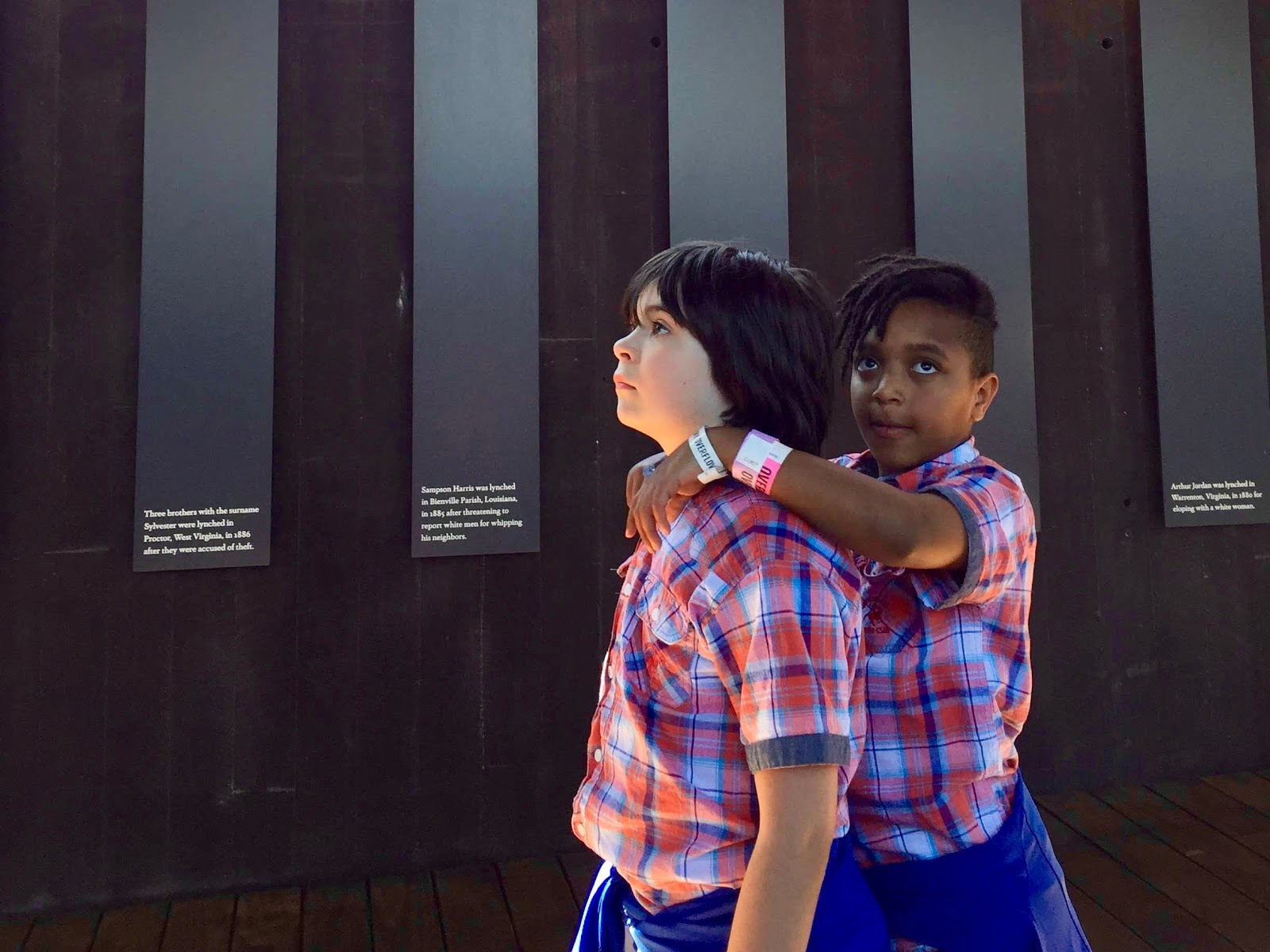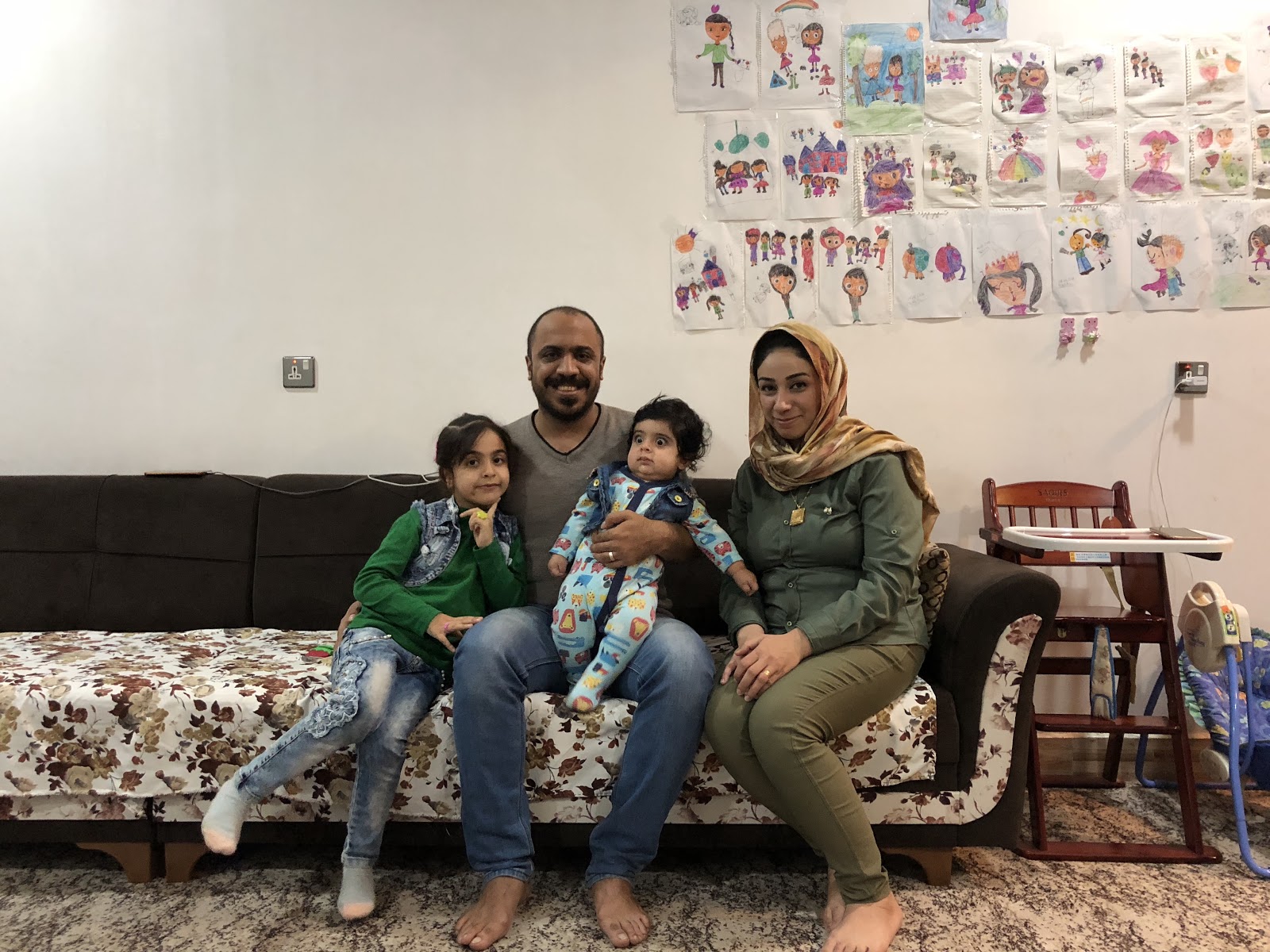
Season 2 | Episode 3: Family Values
How much should kids be involved in shaping our communities? Should we shield children from news about violence and war? In this episode, we attend a vigil with the Oestreich family, who believes community involvement is a core family value.
Share this episode
Show Notes
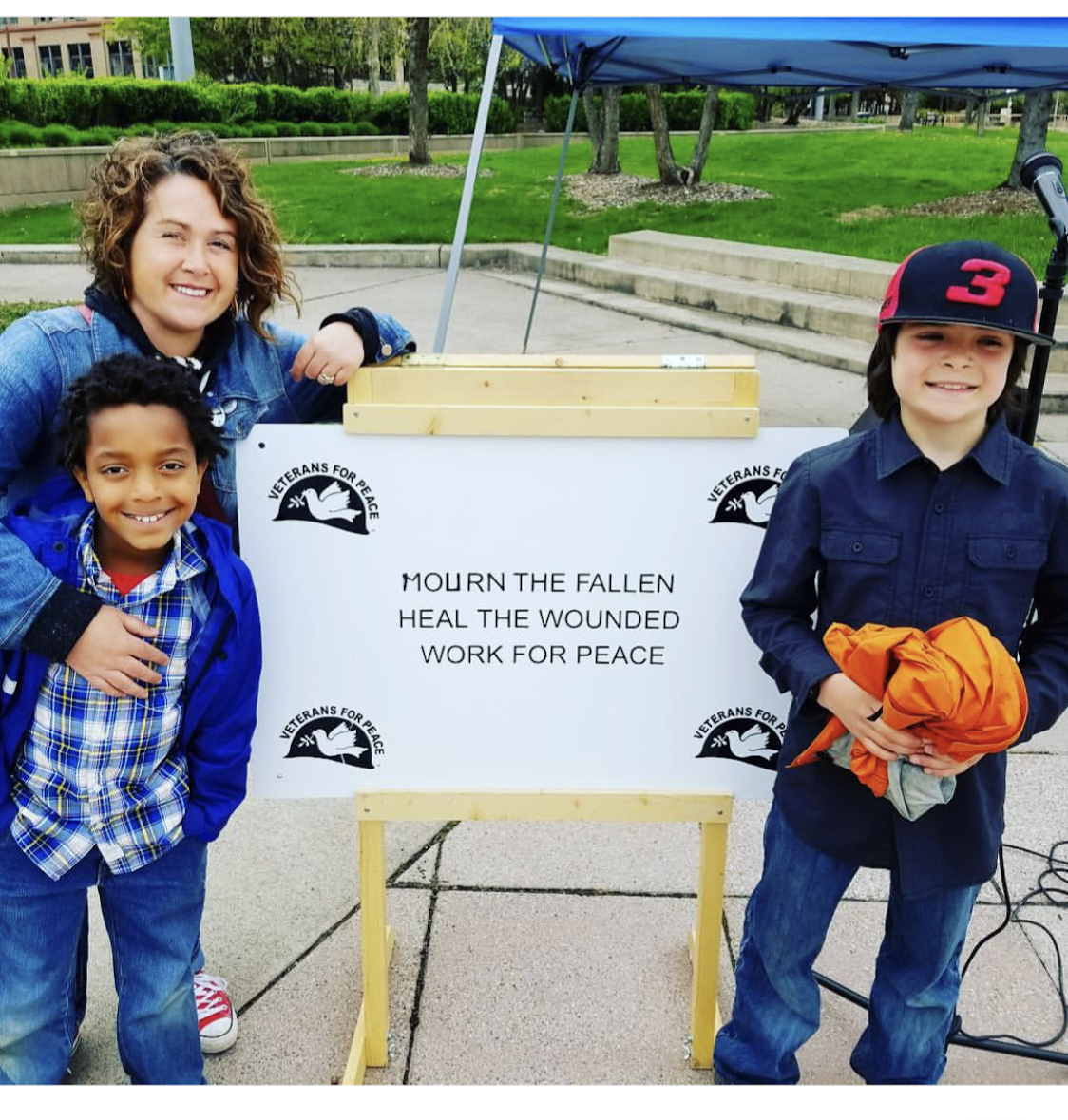
Diana Oestreich has been the key relationships officer with Preemptive Love for nearly four years. Before that, Diana was a combat medic in the Iraq War. Her experience as a veteran shapes her views on everything, including how she and her husband Jake raise their kids Zelalem and Bridger.
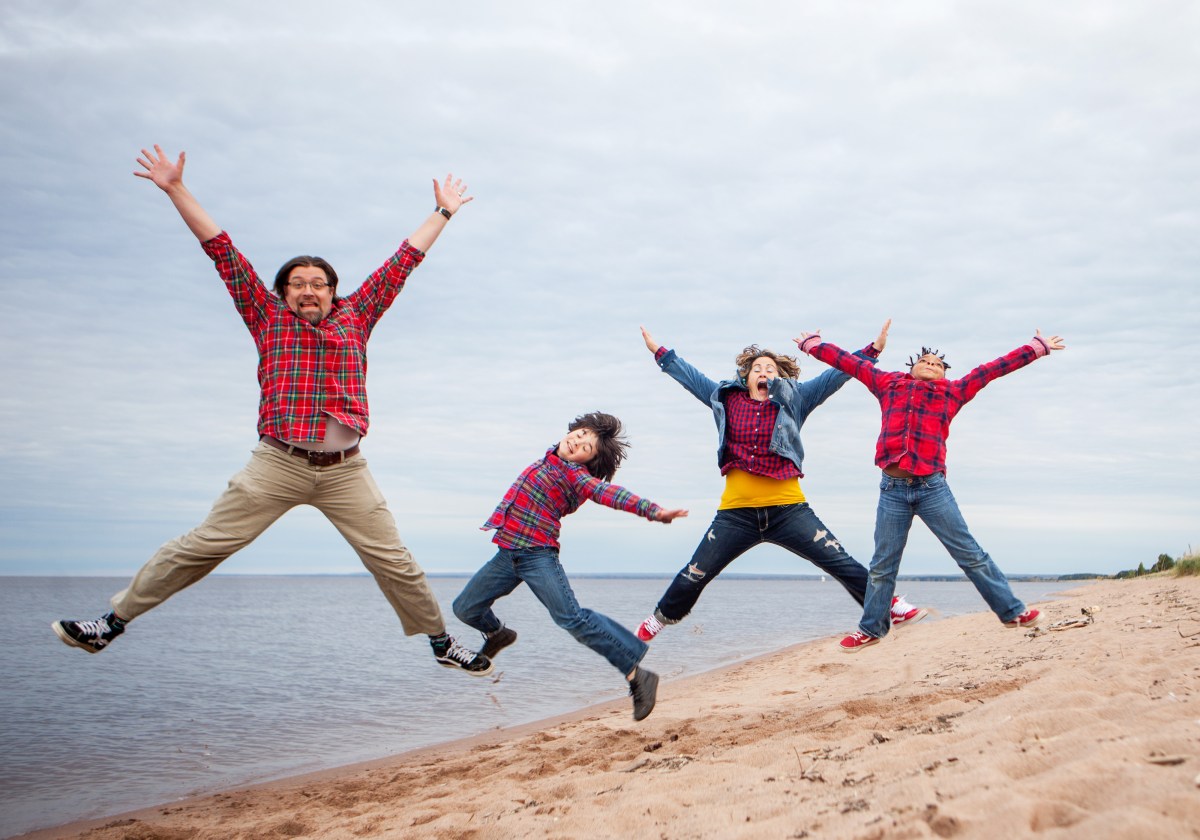
What does their commitment to showing up for their community look like? Recently, Diana and her sons joined their community at a local Lights for Liberty event, a vigil for children seeking asylum at the US-Mexico border, and they let us come along with them for this episode.
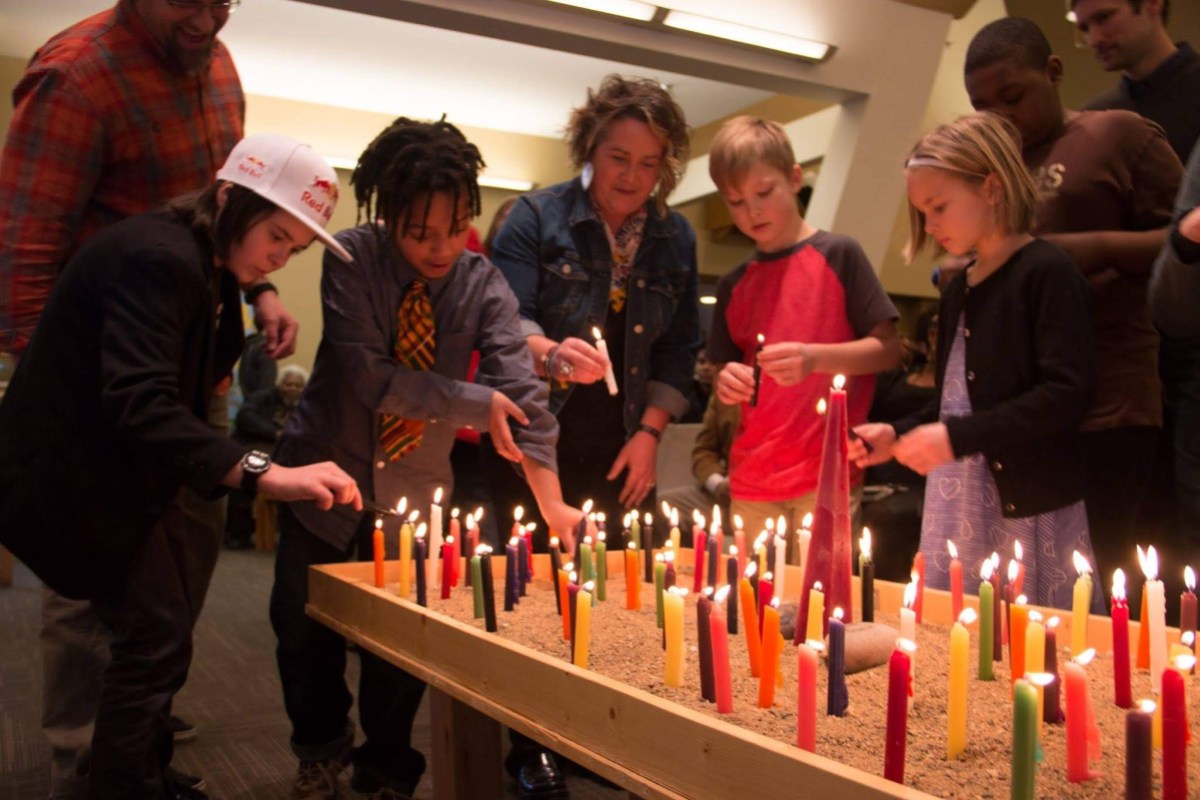
Diana’s 5 Tips for Community Involvement with Kids
Kids can’t care about people they’ve never seen. Showing up values others and connects children to the community they’re part of.
- Connect with your community by moving toward people groups you don’t already see and know. Start by attending events that don’t directly support your children’s school, hobbies, or faith.
- Go to other people’s celebrations, memorials, and worship events. Showing up is the easiest way to learn more about your neighbors. When someone throws out the welcome mat to join in celebrating, accept the invitation. You never know where your “yes” might lead.
- Volunteer once a month. Building relationships help you get to know your neighbors who happen to be experiencing something different than your family. Maybe they’re experiencing homelessness, are food insecure, or need more people in their life. When we see each other, we see past each other’s hurdles or circumstances. We have more in common than we knew.
- Visit your library. Ask for books on your town’s history. Learn who lived on the land—where are they now? Who immigrated there? Getting to know your town’s story will lead to learning about who makes up your community.
- Reach out to groups that have had less access to freedoms and safety from violence. Consider connecting with synagogues, mosques, Black churches, indigenous groups, or LGBTQ communities.
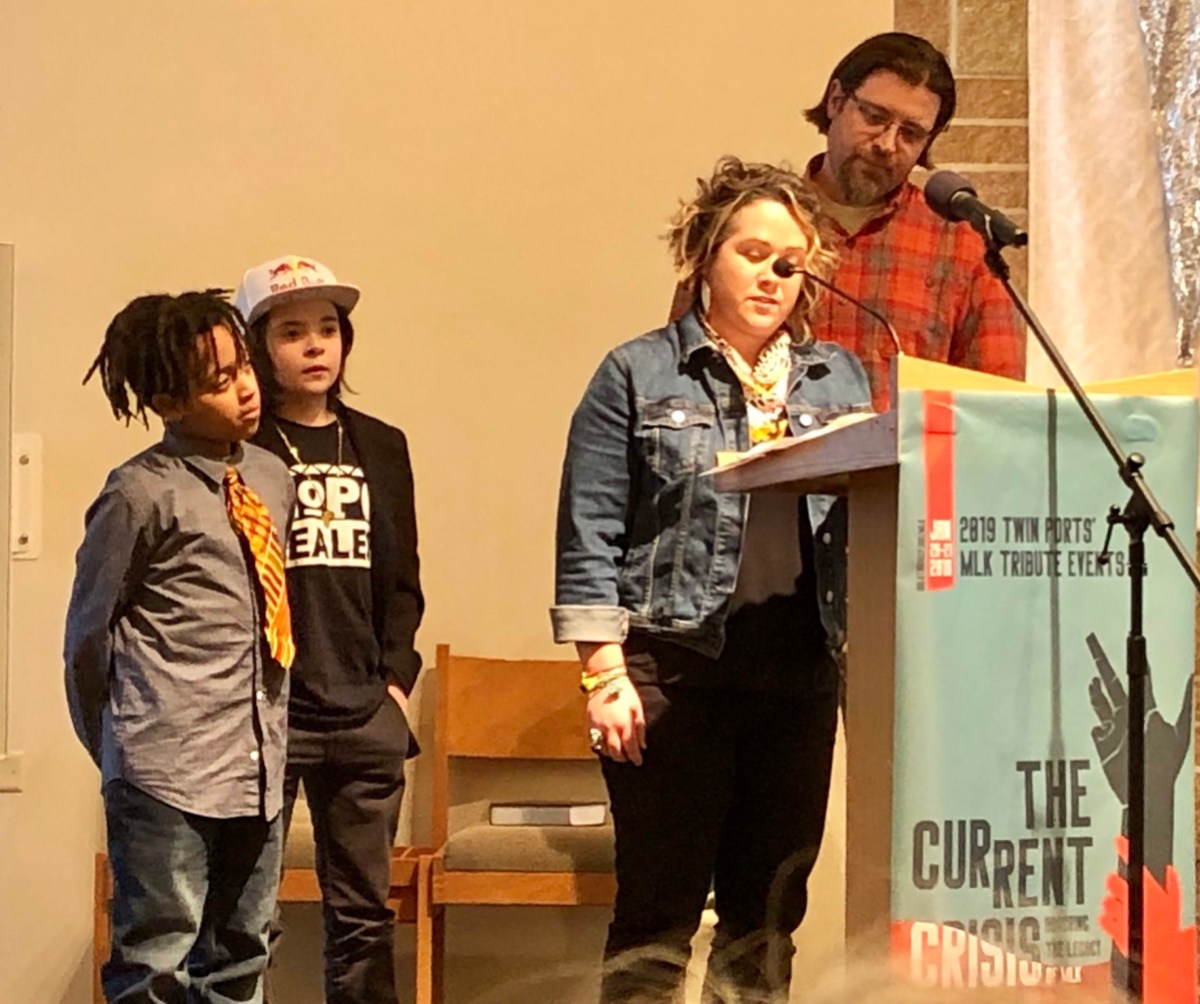
Further reading:
The Love Anyway podcast is written and produced by Kayla Craig, Ben Irwin, and Erin Wilson. Skip Matheny is our digital production director. Jonny Craig is our audio editor. Our audio is mixed and mastered by Dylan Seals. Jeremy Courtney, Jessica Courtney, and JR Pershall are executive producers. Special thanks to Diana Oestreich, Bridger Oestreich, and Zelalem Oestreich. Our theme music is by Roman Candle.
Don’t miss an episode. Subscribe now on apps like Apple Podcasts, Google Podcasts, and Spotify.
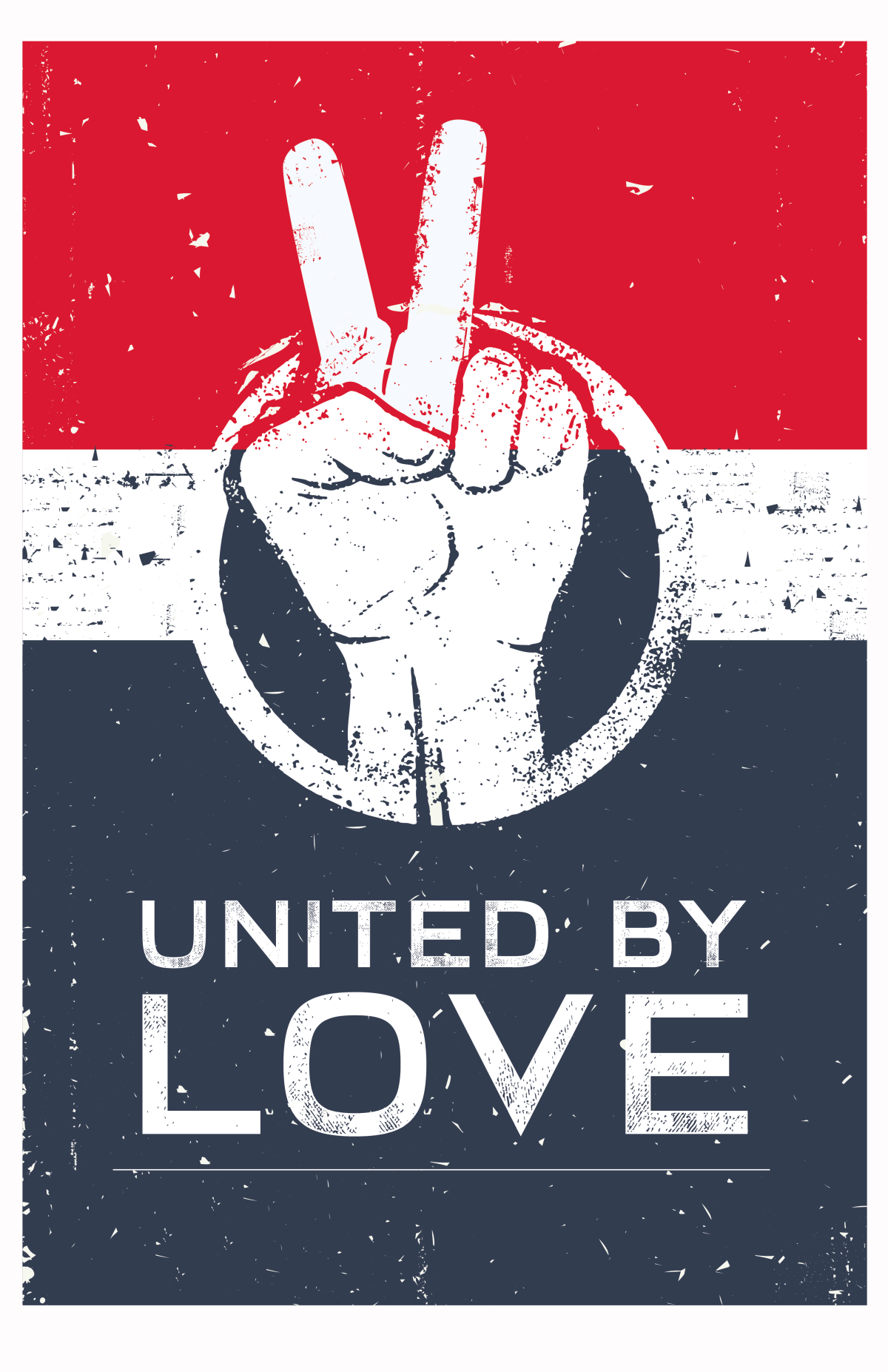
Additional Resources
United By Love Poster
Download this free United by Love poster to show your community that you care.
Full Transcript
Zelalem: It’s important because when everyone’s working together, we can do amazing things. Strength comes in numbers. And like, if everyone’s fighting for what they believe in, they can change tides. It feels good to know that people are actually getting out and thinking about what’s going on in their community so they can make a change.
Erin: How much should kids be involved in shaping our communities? Should we shield them from news about violence and war? Today, we’re hearing from the Oestreich family, who believes community involvement is a core family value.
Diana: My name is Diana Kay Marie Oestreich, You can call me Diana. I live in Duluth, Minnesota. And I am a peacemaker with Preemptive Love. And I also have been a sexual assault nurse in my community. I’m a mother of two little boys. And I’m a writer.
Erin: Diana is a dear friend of mine. She has been the key relationships officer with Preemptive Love for nearly four years. But before that, years before I moved to Iraq, Diana lived here during her days as a Combat Medic in the Army National Guard. She was deployed during the Iraq War for 397 days. Her experience as a veteran shapes her views on absolutely everything, including how she and her husband Jake raise their kids.
Diana: When I came back from serving in the Iraq War, I had my eyes open to what violence really looks like. And when I came home, I knew that I wanted to wage peace. I wanted to show up for peace. But I didn’t really know what that looked like. And so we just decided, as a family, that anytime somebody in the community raised their hand and said, We are scared. Or there’s been violence done against someone in our community, or we want the community to come and listen to us.
Erin: What does that commitment to showing up for their community look like? Well, so far this summer the Oestreich family participated in a Veterans Day service with Veterans for Peace, held an annual summer than you party for all the teachers who have invested in their kids’ education and lives over the years, hosted a party for their friends to stuff backpacks to be sent to the US southern border for asylum seekers, shared an iftar meal breaking the Ramadan fast with some Muslim friends, and cooked dinner and hung out with friends at a local homeless shelter. All this in addition to the usual summer activities like camping trips, mountain biking, and walking the dog at the beach. Diana, Jake, and their sons Bridger and Zelalem stuff life full to the brim!
Recently they joined their community at a local Lights for Liberty event, a vigil for children seeking asylum at the US-Mexico border, and they let us come along with them.
Zelalem: I’m Zelalem Oestreich. I am 10 years old about to turn 11.
Bridger: I’m Bridger Oestreich. Twelve years old.
Diana: And I’m 39 which is pretty awesome. So we are headed to a vigil in our community. What is it about?
Bridger: So it’s to, like stop or bring attention to how we’re treating immigrants who are trying to come into the United States. And they will oftentimes be split up and then children will be put in detention centers where they will have no basic necessities.
Diana: Why do you show up in the community?
Zelalem: Kids are the next generation of adults. So you kind of want to treat us good. So we can make the world a better place for our next generation, too.
Bridger: Yes.
Erin: For many adults, there’s often a level of fear about including children in these kind of public gatherings: Is it safe to bring kids to a rally…a protest…a vigil? Zelalem and Bridger, unprompted, had some thoughts about that.
Zelalem: Right now, kids are watching, playing Call of Duty. But you’re not really bringing your kids to these marches and stuff like that. Because they might think, Oh, no, it might be a little too dangerous. But you’re watching Call of Duty. A killing video game. Yeah.
Bridger: Yeah, the parents are trying to shelter them. And yet they’re playing Call of Duty. It just doesn’t make sense.
Erin: As Diana and her sons prepared to attend the vigil, where Diana was invited to speak, they reflected on how this wasn’t the first time they had attended events as a family.
Diana: You’ve gone to other things in the community. So what was that like for someone who has never gone to community vigil or community meeting about something that that is violent or needs to change?
Zelalem: Um, the first time I went, I would say I was a little creeped out. But then I got into the groove. And on the way back, I actually kind of felt like I was thinking more about what is happening in our world.
Diana: So what did you go to? What was it about?
Zelalem: Like the Martin Luther King March.
Erin: Back in April, the Oestreich’s community woke up to posters pasted through the downtown core and a popular park. The posters were promoting a white supremacist group that was recruiting in Duluth—a group that believes people of colour aren’t American. In response, Diana and her boys attended a community meeting addressing the hate group’s racist initiatives, with an armful of “United by Love” posters to spread around town. For Diana and Jake, seeing this tangible evidence of racial hatred in their community hit particularly hard…
Diana: So we’re a multiracial family.
Kids: Yeah, yes.
Diana: So how did that make you feel, Bridger? Knowing that your brother who’s African American, that there’s people putting up posters that are trying to tell people that he doesn’t belong here?
Bridger: Kind of scared for him, then also, rather angry, and just makes me want to do something. I feel like, we’ve got to do something, we can’t just sit here and do nothing.
Diana: Yeah. So were you glad that the community gathered together to say, how is this affecting us? And how can we respond?
Bridger: Definitely felt kind of good. I was glad that there were so many people there at the end, people had to stand. There wasn’t enough room.
Diana: So Zelalem, as an African American, how did you feel being at that meeting?
Zelalem: I started listening to what it was about, and I was kind of freaked out. But then I was like, Look, all these people here that actually care about this. And there’s probably millions more, but it made me feel good to know that there are other people besides our family, that know, that know, and care about racism and discrimination.
Diana: So you’re saying that when you show up to these community meetings, it might be a little awkward in the beginning, but then it makes you feel like our community is stronger and cares about you and cares about your future?
Zelalem: Yeah.
Diana: Yeah, that’s, that’s really how I feel.
MUSIC
Diana: So something you said earlier is that when you go to a community event, vigil or a March, you feel like when we get together, that is people coming together, because it makes us believe that we can be the people who change things, we can be the people who make kids safe, we can be the people who end these detention camps that are hurting kids and families.
Zelalem: It’s important, because when everyone’s working together, we can do amazing things. Strength comes in numbers. And like, if everyone’s fighting for what they believe in, they can change tides, it feels good to know that people are actually getting out and thinking about what’s going on in their community so they can make a change.
Bridger: I completely agree with what he just said.
Diana: You know what? Me three, you guys, me three. I think it’s really cool. Because America is only as great as we are willing to make it.
MUSIC
Diana: So every time I go to one of these meetings, I find out that more people care than I know. And then we always hear from people in our community, who are doing incredible things. And then we walk away and I’m like, wow, we aren’t hopeless, we can do something.
Zelalem: Love your enemies, love your neighbors, don’t cast them out because you don’t like them or because your other neighbor is doing so.
Diana: So you think that going to these are where you get to actually walk out the things that you believe.
Bridger: Yeah.
Diana: About loving your enemy and loving your neighbor.
Zelalem: Yeah.
Diana: So we’re headed out. We’re going to eat some dinner and then we’re going to head out to the vigil.
Diana: And do you think there’ll be any kids? Like you guys?
Boys: Maybe. Hopefully.
Diana: So how’s it normally when you go tell me? Are there kids there?
Zelalem: It’s normally me and Bridger are the only ones under 20.
Diana: And then we are going to jump in the car and walk in and we won’t know what it’s like. But we will talk about it after. See how it goes.
[MID ROLL AD]
Diana: So we are we just pulled up in the parking lot. And it looks like there are a lot more cars than usual.
Diana: What do you think it’s gonna be like?
Zelalem: No idea.
Bridger: I don’t really know. Cause they’re all different.
Diana: It looks like we are here. You guys think you want to sit in the front, the back? What’s your plan?
Zelalem: Front-ish.
Bridger: Middle-ish. Enough so we can see. We’re short.
Diana: What kind of people from the community do you think might show up?
Bridger: Sounds like so far racial justice leader people that we generally see at like the marches and rallies.
Diana: We should go grab our seats, right? Yeah. Alright. See you guys in there.
[Lights for Liberty clip]
Erin: Diana, Bridger and Zelalem gathered after the vigil to compare notes about what they each experienced during the event. When Diana asked them to share what they heard, they kept coming back, unprompted to one point: “I heard my mom.” Kids are listening. Kids are paying attention to what the adults in their lives are doing.
Diana: Alright, so we just walked out of the lights for liberty vigil. Would you guys think?
Bridger: That like, there are thousands, thousands of people who are doing this. They’re hoping they believe that this is not how America is supposed to be. America is a great country when we follow our principles. We heard from the mayor.
Duluth May: I want you to know as we gather here tonight and hear the powerful words and testimony and call to action from so many of us in the community that you are welcome and you are loved and you are seen and you are believed. And there are many places where you could be, and you are here, right where you belong.
TRANSITION
Diana: I thought that was really cool. She said everyone belongs. And we heard from a Mexican immigrant…
Zelalem: I also liked him talking about like, there are 1000 different churches and humans that are lighting candles. And that makes you feel like you’re not the only one. And you’re standing together with one candle, with two candles and it gradually grows. It showed that you can do great things. We can melt the wax and despair away.
Diana: Yeah!
Bridger: That’s really good.
Diana: That’s really good.
Erin: After the vigil, I gave Diana a call to see how it went…
MUSIC
Diana: I know what matters that that we go. And I know that the more that kids go, the more they invite kids to go. And this is really why we’re working for peace. Because it’s their world. And they deserve a world that’s worthy of them.
Erin: As we talked, I remembered an earlier story Diana told about one of her sons talking about candles. I asked Diana about what he said. She told me it was a reference to something he had seen at a community vigil they attended nearly five years ago, when Michael Brown, an unarmed black teenager, was fatally shot by a white police officer in Ferguson, Missouri.
Erin: Tell me, there’s a line, one of your boys said about candles and showing up. What was that?
Diana: So Michael Brown, the candles, candles came out. And then when the Orlando nightclub shooting happened, I remember coming home, telling them we’re going to go to a vigil because some people were killed and we want to honor them. They’re like, Oh, so the candles are going to come out mom? [laughs] Like no big thing like this was just normal. And so it made me remember that when bad things happen, my kids see light. They see different people come together and shine a light and hope.
MUSIC
Diana: And that is one of the most beautiful things that I’ve seen that my kids aren’t scared when bad things happen. They look for the light. And they expect the community is going to just gather together and say that we’re for each other. And we’re for hope. And I think that’s one of the biggest things that I’ve seen in them is that they’re more confident that if something bad happens to them, the lights are going to come out, the candles will be lit. There’ll be singing, there’ll be people rushing toward them.
Erin: With every step we take that matters, there’s a cost. Diana told me her family has counted the cost in heartache and heartbreak, grief and lament. But for them, it’s been worth it.
Diana: I think the cost is it, it will hurt your heart to see the painful things that people do to each other. So I do believe my kids have seen sadness. But they’ve also seen a tremendous amount of hope and bravery. And I’m sure if I didn’t bring them to the vigil on Friday night, we could have just eaten candy and had a great night. But we did both. We went to the vigil, they heard about the really hard things. They also saw how many people cared. And then we went to an outdoor movie late under the stars and ate candy.
Erin: Diana, if you were to give maybe a word of encouragement to any anybody listening that has young people in their lives, that think they would like to try going to a vigil, that would like to try going to an interfaith service, but they’re frankly really nervous about doing it. They’re nervous because maybe they don’t know anybody there. They’re nervous about standing out. They’re nervous about not knowing if they can say the right thing or do the right thing, what would you say for them?
Diana: I would say two things. One, your kids are made for this, they are made to show up and be a friend in a community like this is who they are. And secondly, you already have everything that you need. Because presence is powerful. So you have what you need. And I think that the carrot that I’m going to leave you with is that your kids are what the community is working for.
MUSIC
Diana: the most important thing you’re going to do when you bring your kids to these community events, is you’re going to give them a foundation, they’re going to be knit together that says, Wow, I’m not just part of my family. And I’m not just part of where I worship, or my soccer team…like this community is for me. And that message is what is going to invite our kids into being who they are being celebrated and celebrating others.
END MUSIC
Erin: “This community is for me.” This is exactly the kind of world we can build for each other. One where we show up for each other to celebrate and to grieve. One where practical, tangible acts of love transform us into the kind of neighbors who break down walls, usher in welcome, make space for each other and make it hard for violence to grow.
Erin: Visit our show notes at preemptivelove.org/podcast for a downloadable “United in Love” poster to spread around your neighborhood, behind-the-scenes photos of the Oestreich family…and grab Diana’s five quick tips for community involvement with kids.
We’re @preemptivelove on Instagram, Twitter, and Facebook. If this episode has encouraged you to get involved in your community with the young people in your life, we want to hear from you: Just snap a picture and tag us with #loveanyway. We’re in this together.
And … before we go, one easy way to support the true stories we’re telling … and the peacemaking work we’re doing … is to simply give us a five-star rating on your podcast app, and leave a written review with your thoughts. It helps others see the work on the frontlines that you’re making possible.
Come back next week, when we’ll explore the ways that being intentional with the young people in our lives can lead us well through discussions on war, violence, and politics. Until then, I’m Erin Wilson. Thanks for listening to Love Anyway.
MUSIC
END AD
End credits: The Love Anyway podcast is written and produced by me, Kayla Craig, along with Ben Irwin, and Erin Wilson. Skip Matheny is our digital production director. Jonny Craig is our audio editor. Our audio is mixed and mastered by Dylan Seals. Jeremy Courtney, Jessica Courtney, and JR Pershall are executive producers. Special thanks to Diana Oestreich, Bridger Oestreich, and Zelalem Oestreich. Our theme music is by Roman Candle.

